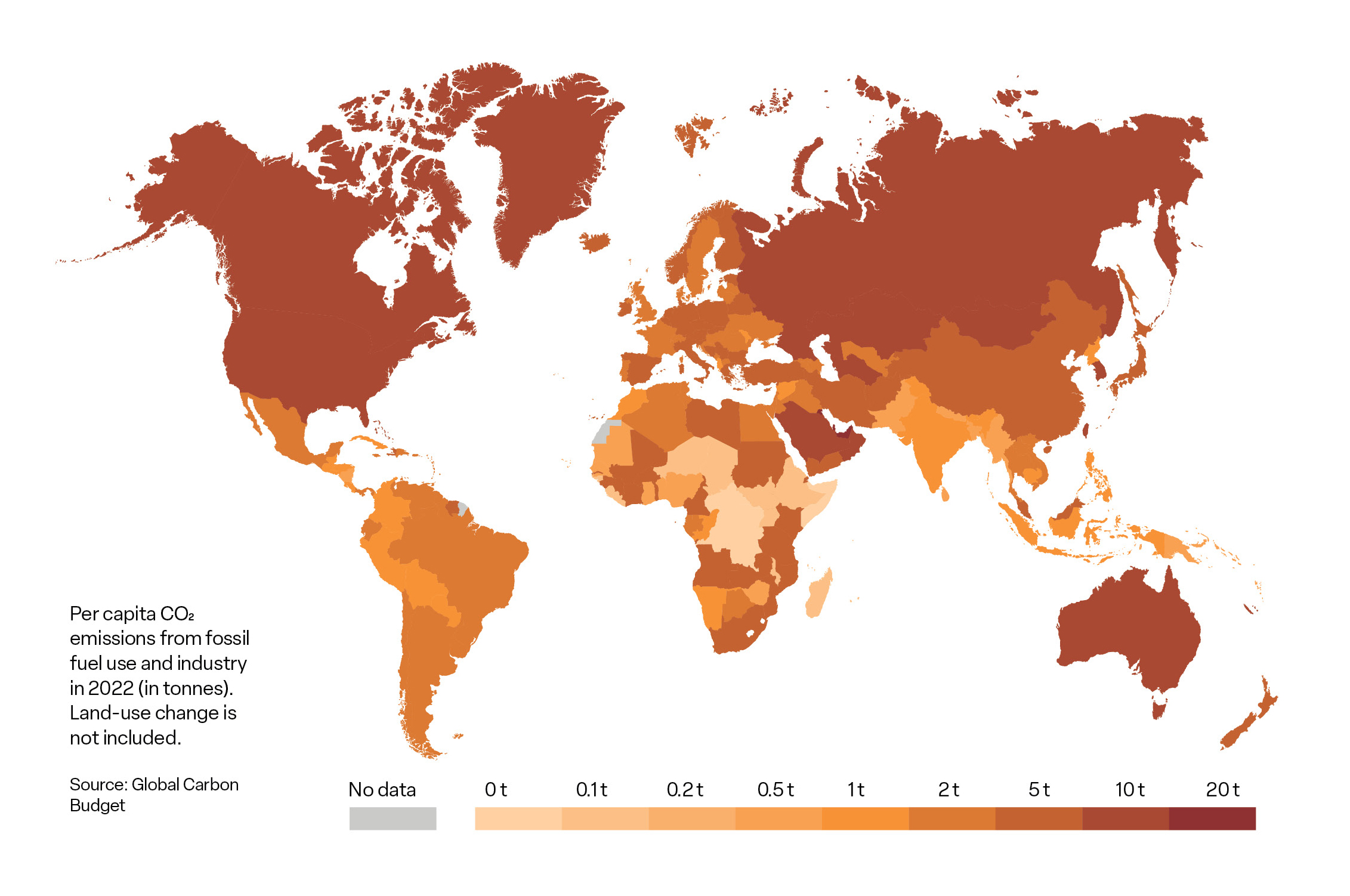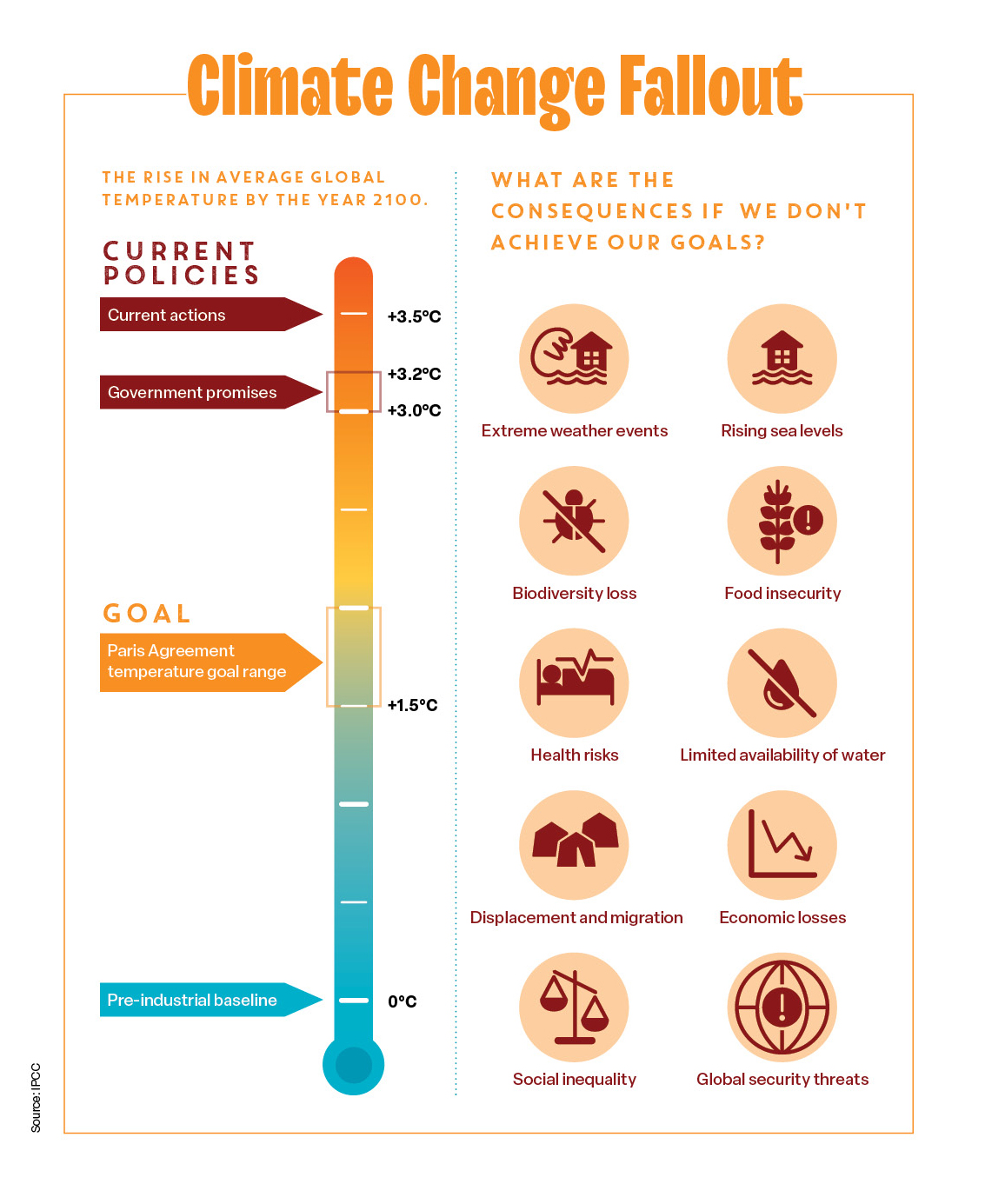
The world stands at a crossroads in the battle against climate change. With the impacts of climate change already being felt around the world, we asked some of the leading EU negotiators to reflect on the first Global Stocktake process.
The Global Stocktake, which takes place every five years, provides a snapshot of the world's advancement towards the Paris Agreement goals. In 2023, the first stocktake served as yet another wake-up call, emphasising that the world is off track to meet these goals and limit global warming.
The steps needed to get back on track are clear: The world needs to transition away from fossil fuels, triple renewable energy and double energy efficiency. EU negotiators were pushing for this at the last COP meeting in Dubai.
“I think the IPCC [Intergovernmental Panel on Climate Change] has been very clear. We have the tools, technology and knowledge needed – now we have to implement that,” says Dr Frederik Pischke, Scientific Adviser at the German Environment Agency, who represented the EU in the UNFCCC Global Stocktake negotiations.
“We need to triple renewable energy, double energy efficiency by 2030 and phase out fossil fuels, while making sure that the different sectors - energy supply, transport, buildings, industry and agriculture - play their role in a decarbonised world. Now, it is about taking the hard decisions for a low-carbon, climate resilient and equitable future and making climate change a priority,” he adds.
The immense ambition gap
Following COP28, the focus is now moving on to the submission of the updated Nationally Determined Contributions (NDCs), where countries lay out their new climate action plans. The NDCs need to be submitted nine to 12 months before COP30, which will take place in Brazil in 2025. Countries will need to fix the major ambition gap between their plans and global climate goals:
“The current NDCs fail to reach the goals of the Paris agreement: The UNEP Emissions Gap report and UNFCCC analysis show a big ambition gap on where we're supposed to be in terms of emission reduction and where the NDCs will bring us,” Pischke explains.
"Even if we reached the targets that countries are setting, we would be falling far short – we would only be about 2% below the 2019 emission levels in 2030. To keep the 1.5°C temperature goal in reach, a 43% decrease would instead be needed by 2030, according to the IPCC,” he continues.
Pischke emphasises the critical role of NDCs, outlining how they guide countries in increasing ambition and taking climate action.
“In their new NDCs, the countries have to specify how they are reflecting these results of the Global Stocktake."
Dr Kaarle Kupiainen, Ministerial Adviser at the Ministry of Environment in Finland and leader of the EU negotiation team in the Global Stocktake stream, says that the main purpose of the Global Stocktake is to inform the parties, when they update their NDCs.
“The success of the first Global Stocktake will be determined in 2025 when we see the updated NDCs. They will collectively show whether countries have taken up the call and information from the first Global Stocktake and translated it into their ambitions to collectively achieve the goals of the Agreement.”
Solutions needed to address multiple crises
The Global Stocktake focuses uniquely on collective progress rather than individual country achievements. It also includes the engagement of cities and sub-national actors to collectively progress towards the Paris Agreement.
“The Stocktake shows whether we are advancing towards the goals of the Paris Agreement on a collective level: the temperature goal, increasing resilience, adaptation and aligning financial flows and providing climate finance. Therefore, the focus is on the overall progress, without differentiating or singling out specific countries,” Pischke says.
The implementation of ambitious targets poses a considerable challenge amid competing global priorities.
“We have been a bit worried about the implementation of the decisions made in the Global Stocktake because it is not very concrete on how we are going to follow up on the important targets. What we are currently working hard to achieve is to get these issues reflected in the future decisions and in the process itself,” says Kupiainen.
Pischke underscores the need for smart solutions that address multiple crises simultaneously:
“The implementation part is a huge challenge. We are confronted with several obstacles, there are a number of wars and we have just come out of a pandemic. There are multiple priorities that governments have to address. We need solutions that are part of the circular economy approaches, strengthen sustainable lifestyles and which have the potential to address multiple crises while taking societies forward.”
Climate finance can become a hurdle
While acknowledging diverse perspectives on climate action, Pischke sees the Global Stocktake as a unifying force. It provides a common understanding and a roadmap for achieving the Paris Agreement goals. The upcoming COP meetings in Azerbaijan and Brazil will delve into collective, quantified goals on finance, and NDCs.
“Some argue that, if we fail to reach a consensus and an ambitious common goal on climate finance, it can actually harm the update of the NDCs in 2025 and risk the implementation," Kupiainen says and continues:
"Financing is an important enabling component of global action: the implementation of domestic climate actions reflected in the NDCs requires both support and financing for the developing states, particularly for the least developed. However, it remains to be seen and of course, the UNFCCC is working hard to get a good outcome from the next COP.”
Climate change threatens a number of human rights, including the right to life, water and sanitation, food, health, housing, self-determination, culture and development. The most vulnerable people in the world are the most affected.
Pischke emphasises the need for a wider perspective on climate impacts in the Stocktake:
“I think it is very important to include civil society and the diversity of actors. What also could be stronger, in my view, is how to consider human rights in the context of climate change and climate action as well as gender consideration. We are still lacking a lot of gender related data. That should also be improved.”

